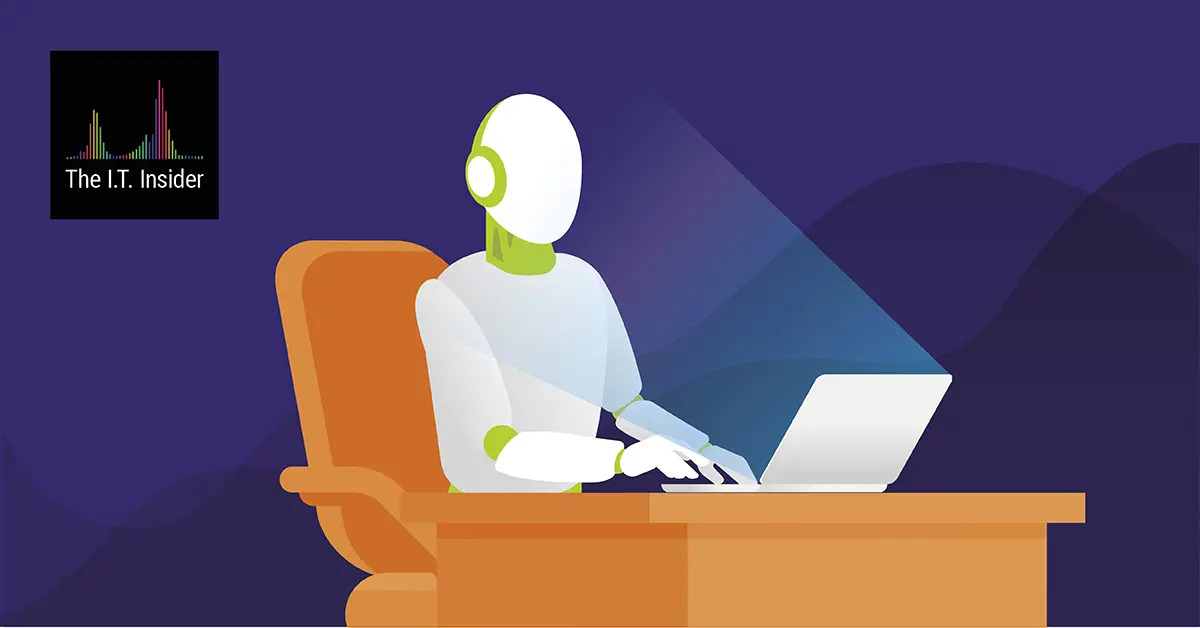
The Fact and Fiction of Cognitive Computing – Part 2
Added Friday 18 September 2020 by Arrow
Cognitive Computing Systems of Tomorrow
“Technology creates possibilities and potential, but ultimately, the future we get will depend on the choices we make. Technology is not destiny - We shape our destiny.”
Erik Brynjolfsson, MIT
So, what does the future hold for cognitive computing? Coming up with specific predictions using crystal-ball gazing is never an easy process, however, it is possible to make some predictions around likely trends that cognitive computing will follow, such as those dealing with engagement, decision making and discovery.
Engagement: the great SciFi author Issac Assimov was asked why the robots in his stories were so similar to humans; his answer was that because the world had been built for organisms with two eyes, two ears, a mouth, two arms with two hands and ten digits, it was easier to create intelligent machines with the same features, so that they could operate systems built for humans, and perceive and interact with the world in the same way humans do – in essence intelligent automata would fit in to, and operate in a human world more naturally.
In the future, cognitive systems will be increasingly capable of understanding human speech, capturing the nuances of emotion, and recognising and understanding the metaphors, synonyms, and homophones that humans so easily deal with in normal conversation. Similarly, we will see the development of much more human sounding cognitive speech patterns combined with increasingly sophisticated speech reproduction. In time, cognitive systems will be able to engage with people in a very natural manner, listening and responding in a way that will be indistinguishable to speaking to another person. Not only will this make them much more effective and efficient at assisting people, it will also bring a much higher level of acceptance and adoption of such systems from the public.
Decision Making: Many of the benefits that cognitive computing systems bring are based around helping humans make the best decisions, with good decisions typically being based on having access to as much relevant information about the subject as possible.
As future cognitive systems gain increasing access to a world in which some 2.5 quintillion bytes of data (that’s a 1 followed by 30 zeros) is created every day, there is a vast body of data available for cognitive systems to tap into. If cognitive systems were able to gain access to this vast body of data, in effect becoming virtually omnipresent, the scope for unprecedented analysis, reasoning, and decision making will enormous.
Discovery: With future advances in the reasoning and analytical capabilities of cognitive systems, combined with access to massive amounts of data, and the ability to highlight subtle patterns and relationships in the data, the future is likely to see cognitive systems that are able to come up with startling new conclusions, to generate innovative guidance and advice, and even make novel and unexpected predictions. For centuries, scientific research has been the province of a small number of scholarly workers; with the skills we have described above, might it be possible for cognitive systems to conduct new research on novel subjects? What valuable insights and findings might a future cognitive system make during a study of the vastly complex Human Genome, for example?
As a final thought, I wonder whether cognitive systems might achieve self-awareness or even consciousness. And if they do, will these hyper-intelligent, omnipresent, computationally superior beings view us as their masters, their servants or their slaves? In the next section, we will look at some of the potential risks from cognitive computing.
Is there a Risk from Cognitive Computing?
While we have already established the value that cognitive solutions can deliver in distributing human expertise and knowledge to a wider audience – such as making specialised medical diagnosis and guidance available to less able practitioners, are there any down-sides to cognitive?
I would personally highlight two concerns; a genuine issue that will have to be addressed, and a theoretical one which we need to be aware of in the future.
Cognitive computing is a “disruptive technology”, driving significant change to existing job roles and established business models; as such, cognitive computing will have a genuine social impact. If it is able to capture and provide widespread access to the knowledge and best practices of human experts, what will happen to those experts?
In the short term, will they lose the respect and esteem of the people who have relied on their expertise? Will their relative worth, and hence their rewards, be eroded? In the worst case will they end up out of work? Lastly, might the availably of cognitive computing solutions in a particular discipline actually dissuade people from choosing a career in that area? As with many disruptive technologies, it is often difficult to predict the ultimate results they will have (even when dealing with predictive technologies)!
The second, largely theoretical concern, addresses the speed at which computationally powerful, self-modifying, self-learning cognitive systems could evolve.
Biological systems have relatively long reproductive cycles (such as the 22 months gestation for the African Elephant). Even the short reproductive cycles of bacteria such as E Coli are between 20 to 60 minutes. With massive processor power, a self-modifying, self-learning cognitive system with cycle times in fractions of a second, would be able to complete the equivalent of millennia of biological evolution in just seconds. In the late Professor Stephen Hawking’s own words:
“Artificial intelligence has the potential to evolve faster than the human race.', 'Once machines reach a critical stage of being able to evolve themselves we cannot predict whether their goals will be the same as ours.”.
This may seem like the stuff of science fiction, but there are some serious scientists who advise caution; let’s leave the last word to the Professor himself, who provides the following good advice:
“We need to ensure AI is designed ethically, with safeguards in place.”
Summary & Conclusions
Cognitive computing delivers the promise of distributed access to intelligent computer systems that embody the experience and knowledge of human expert in fields as diverse as cyber-crime prevention, medical diagnosis, mineral exploration, smarter cities and financial advisory systems to name just a few.
Although in the past, a lack of computing power held cognitive computing back, today powerful processors, fast and plentiful memory, new research into machine cognition, and access to massive amounts of data, mean cognitive systems have come of age.
In the future, continuing developments in cognitive computing, delivery on ever more sophisticated processors, and access to vast amounts of data, will lead to cognitive systems that are natural to interact with, that will make startling new discoveries and predictions, be capable of undertaking autonomous research, and maybe even become self-aware.
Whatever the future of cognitive computing, we have to consider Professor Hawking’s words carefully and ensure we design such systems ethically and with the appropriate safeguards in place, in order to ensure that their impact is positive, beneficial and desirable.
Epilogue
So, is Prof Hawking right about the dangers of cognitive systems? Will humankind end up being enslaved by SpaceNet and its Exterminator droids (names changed to avoid litigation ;-)? No, I think it may be much more subtle …
Let’s assume for a moment that a cognitive system is monitoring the interweb and reads this blog. The system determines from the content of this blog, that I am a threat! Next morning I wake up and my Internet of Things (IoT) enabled home computer tells me that it has detected that my blood pressure is a little high today, but not to worry, because it has made an appointment at the Doctors at 4PM for me.
The Doctor doesn’t bother to measure my blood pressure, he simply trusts the computer measurements made using an IoT medical sensor embedded in my body, and takes the computer's recommendation to prescribe a particular drug of a specific strength, which has already been ordered and is waiting for me to collect from the Pharmacy. As a good patient, I trustingly take the tablets the computer has prescribed for me at bed time – and next day I am eliminated from the meme-pool ;-) (with apologies to Richard Dawkins).
In closing, I have to admit that I actually have a much more positive view of the future cognitive computing world – one where intelligent agents make our lives safer, easier, more productive, and healthier. It is odd though, my computer has been warning me about my high blood pressure lately; let’s hope the Doctor can sort it out today at my 4PM appointment!
Missed the first part of this blog? Read it now
More Information
If you’d like hear more about this, please complete the form below:
